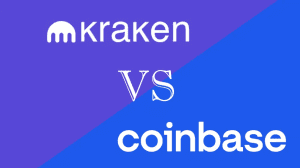Hot Wallets vs. Cold Wallets: The Complete Guide

Cryptocurrency wallets are digital tools that allow users to store, manage, and trade cryptos securely. But with several options and strategies available, the debate between hot wallets vs. cold wallets takes center stage.
With the growing popularity of digital assets, it’s essential to understand the differences between hot and cold wallets, their functionality, benefits, drawbacks, and how to choose the best option for your needs. This article will cover everything you need using plain English – no technical jargon.
Hot Wallets vs. Cold Wallets – Quick Summary
Short on time? Here are highlights of the entire guide.
- Hot wallets and cold wallets are two types of cryptocurrency wallets with distinct features and functionalities.
- Hot wallets, such as Trust Wallet and MetaMask, are software-based wallets connected to the internet, offering convenience and quick access for frequent transactions.
- Cold wallets, including Ledger Nano X, Trezor Model T, and KeepKey, are hardware wallets that provide offline storage, prioritizing security and protection against online threats.
- Hot wallets offer accessibility and integration with exchanges but come with security risks and centralized control.
- Cold wallets enhance security and allow control over private keys, but they may be less convenient for frequent transactions and have an upfront cost.
- Security, functionality, reputation, user experience, and backup options are essential when choosing a crypto wallet.
Understanding Hot Wallets
Hot wallets refer to cryptocurrency wallets connected to the internet, enabling users to access and manage their digital assets conveniently. They are typically software-based wallets available as mobile apps, desktop software, or web-based platforms.
Furthermore, they provide real-time access to your cryptocurrency holdings, allowing you to make quick transactions. Hot wallets are ideal for frequent trading and everyday use, offering instant liquidity and easy integration with exchanges.
Pros:
- Accessibility: Hot wallets provide instant access to your funds, allowing you to send, receive, and manage your cryptocurrencies on the go.
- Convenience: They are user-friendly and offer intuitive interfaces, making them suitable for beginners.
- Integration: Hot wallets seamlessly integrate with popular cryptocurrency exchanges, simplifying trading activities.
- Wide range of cryptos: Hot wallets support various cryptocurrencies, enabling you to diversify your portfolio easily.
Cons:
- Security risks: As hot wallets are constantly connected to the internet, they are more susceptible to hacking attempts and malware attacks.
- Vulnerability: If your device is compromised, there is a risk of unauthorized access to your funds.
- Centralized control: Hot wallets often rely on third-party servers, meaning you must trust the service provider to secure your funds.
Popular Hot Wallets
The cryptocurrency ecosystem offers a wide range of hot wallets, each with its own features and user base. Here are some of the most popular hot wallets.
Trust Wallet
Trust Wallet is a widely used mobile wallet that offers a seamless and secure experience for managing cryptocurrencies. It supports a vast array of tokens and provides a user-friendly interface. Trust Wallet also enables users to interact with decentralized applications (dApps) directly from the wallet.
MetaMask
MetaMask is a popular browser extension wallet that allows users to manage their Ethereum-based assets and interact with decentralized applications on the Ethereum network. It provides a secure environment for storing and managing tokens, and its intuitive interface makes it accessible to both beginners and advanced users.
eToro
While eToro is primarily known as a social trading platform, it also offers a built-in hot wallet feature for users to store and manage their cryptocurrencies. It provides a user-friendly interface, supports a range of cryptocurrencies, and allows seamless integration with eToro’s trading services.
What Are Cold Wallets?
Cold wallets – or hardware wallets – provide an offline storage solution for cryptocurrencies. They are physical devices that securely store private keys offline, away from potential online threats.
They generate and store private keys offline, ensuring your funds remain safe even if you connect to a compromised device.
Pros:
- Enhanced security: The offline storage of private keys significantly reduces the risk of cyberattacks, malware, and phishing attempts.
- Protection against physical damage: Cold wallets can withstand physical damage like water or fire accidents.
- Control and ownership: They offer complete control over your private keys, eliminating the need to rely on third-party custodians.
- Multi-currency support: Many cold wallets support a wide range of cryptocurrencies, allowing you to store multiple assets securely.
Cons:
- Reduced accessibility: Compared to hot wallets, cold wallets require additional steps to access funds, making them less convenient for frequent transactions.
- Cost: Hardware wallets have an upfront fee, which may deter users who seek free options.
- Learning curve: Some users might find the setup and operation of cold wallets more complex than hot wallets.
Best Cold Wallets
The following cold wallets are widely popular among cryptocurrency users.
Ledger Nano X
The Ledger Nano X is a highly regarded hardware wallet with robust security features. It stores private keys offline and features a secure element chip, ensuring the safety of your digital assets. The device supports multiple cryptocurrencies and provides an intuitive mobile app for convenient management.
Trezor Model T
Trezor Model T is another well-known hardware wallet that prioritizes security and usability. It utilizes a secure chip and supports a wide range of cryptocurrencies. The device features a touchscreen display for easy navigation and offers advanced security measures like passphrase encryption.
KeepKey
KeepKey is a sleek and user-friendly hardware wallet that provides top-notch security for storing cryptocurrencies. It features a large screen for enhanced visibility and supports over 40 cryptocurrencies. KeepKey’s integration with the ShapeShift exchange enables seamless asset trading within the wallet.
Hot Wallets vs. Cold Wallets – Choosing The Best Crypto Wallet
Consider the following factors when choosing the best crypto wallet for your needs:
- Security: Prioritize wallets with robust security features and a proven track record of protecting user funds.
- Functionality: Assess whether the wallet supports the cryptocurrencies you intend to store and whether it aligns with your usage requirements.
- Reputation: Research the wallet provider’s reputation, user reviews, and community support to ensure reliability and trustworthiness.
- User experience: Choose a wallet with an intuitive interface and a user-friendly experience, especially if you are a beginner.
- Backup and recovery: Opt for wallets that provide backup options, such as mnemonic phrases or seed phrases, to restore access to your funds in case of loss or damage.
Hot Wallets vs. Cold Wallets FAQs
Get more information about the different types of crypto wallets.
Can I use a hot wallet for long-term storage?
Hot wallets’ primary purpose is for active trading and regular transactions. We recommend using cold wallets for long-term storage due to their enhanced security features.
Are hot wallets free?
Many hot wallets are free. However, some may charge fees for certain advanced features or transaction services.
What happens if I lose my cold wallet?
Most cold wallets provide backup and recovery options through mnemonic or seed phrases. By securely storing these phrases, you can regain access to your funds even if you lose the physical device.
Can I use multiple wallets for added security?
Yes, diversifying your storage across different wallets, both hot and cold, can enhance your overall security posture.
How often should I update my wallet software?
For maximum security, we recommend you regularly update your wallet software. Wallet providers often release updates to address any identified vulnerabilities or bugs. Staying up to date with the latest version of the wallet software helps protect your funds from potential security risks.
Final Words – Hot Wallets vs. Cold Wallets
Choosing the right wallet is crucial for safeguarding your cryptocurrencies. Hot wallets provide convenience and accessibility, while cold wallets offer enhanced security. By considering factors such as security, functionality, reputation, user experience, and backup options, you can select the best crypto wallet that aligns with your needs and ensures the safety of your digital assets.
Please note that cryptocurrency investments carry inherent risks, and it is essential to conduct thorough research and seek professional advice before engaging in any financial transactions.





